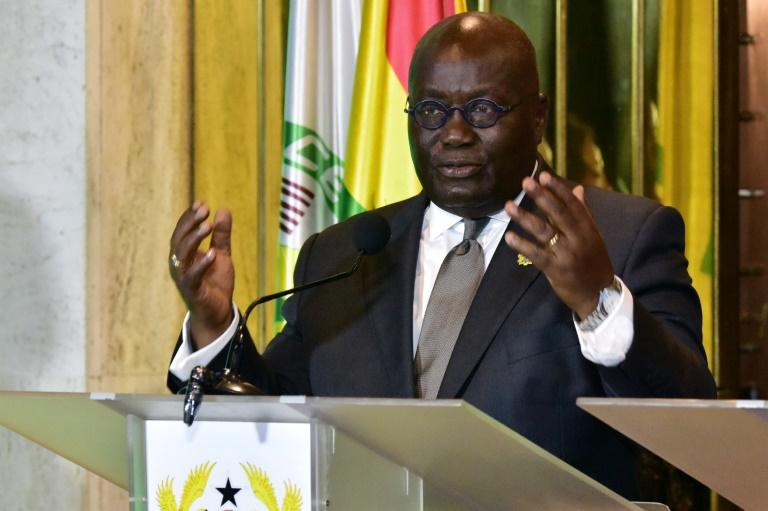Ghanaian government has stepped up efforts to rid the country of toxic e-Waste to limit environmental health crisis as it begins consolidation of ideas on collection centres and formalizing e-waste activities in the informal sector.
Business Hilights Ghana Bureau chief reports that the process is is being driven by the Regional Policy Round Table for the European Union-Funded Project on E-waste Management in Ghana (E-MAGIN).
In line with the partnership deal with the government, the European Union funded project on (E-MAGIN) would engage with regional decision makers from Environmental Protection Agency (EPA), Metropolitan, Municipal and District Assemblies (MMDAs) and other key stakeholders to discuss challenges and solutions to establishing collection centres and formalising the informal sector businesses in e-waste management in Ghana.
However, the story is not the same in Nigeria as since the recent arrest and seal up of a residential compound known for buying up and packaging e-Waste in an unhealthy manner in Ikeja by the Police and Lagos State Safety Commission (LSSC), there had been no official response from the Federal Government or even the National Environmental Standard, Regulatory and Enforcement Agency (NESREA).
NESREA is the Federal agency in charge of regulating and monitoring activities in the sub-sector. Efforts made so far by Business Hilights to get the official; reactions of the agency on the recent Ikeja arrests of two Chinese and sealing of the used compound over packaging of e-waste for export in an unsafe environment failed.
Ghana News Agency (GNA) recalled that since the introduction of Act 917, LI250 and the Technical Guidelines for Environmentally Sound E-Waste Management between 2016 and 2018, the Ghana government had sought to tackle the country’s growing amount of waste from electrical and electronic equipment.
Whereas findings show that the vast majority of the Ghana’s e-waste was collected, dismantled and recycled by a wide-spread informal economy, which tends to disregard standards for environment, health and safety, in Nigeria, e-waste collection, packaging and out-smuggling are perpetrated by an illicit ring of scavengers powered by Chinese with questionable resident permits.
In an interview with GNA, the Director of Ghana National Cleaner Production Centre, on Ghana’s National e-Waste Management Scheme, Mr Lambert Faabeloun disclosed that “Illegal practices being carried out currently by most informal sector businesses included; open burning of cables, draining of lead-acid batteries, crushing of cathode ray tubes (CRT) contained in monitors.”
“These activities often lead to considerable environmental pollution and had dire consequences on the general public as well as the workers in the sector who were directly exposed to the heavy metals and toxins contained in them.”

While observing that the indiscriminate dismantling and recycling of e-waste was largely carried out at Agbogbloshie and other places in Ghana, Faabeloun averred that “In order to curb the environmental pollution and reduce the negative impact of the activities in the informal e-waste sector on human health, practical strategies would have to be taken in order to address the problems on a national scale.”
“The swift enforcement of Act 917, LI 2250 and the Technical Guidelines across other regions beyond the Agbogbloshie scrap yard was imperative to ending the menace,” he added.
Accordingly, he added that “The E-MAGIN Policy Round Table Dialogues, formed part of a holistic intervention to sensitize the various stakeholders on the enforcement of Act 917, LI2250 and the Technical Guidelines.
“Already, the E-MAGIN project had engaged with the Eastern and Volta Regions respectively to identify common challenges, potential solutions and required resources for the establishment of collection centres and the process of formalisation of the informal e-waste economy.
“The policy round tables would inform the formulation of recommendations for local decision makers from EPA and MMDAs to be developed into policy briefs upon completion of the consultation process.
“The E-MAGIN project is implemented by lead-organisation, University of Cape Coast together with Ghana National Cleaner Production Centre, City Waste Recycling Limited and Adelphi, Germany.
“It is financed by the European Union under the SWITCH Africa Green programme and its implementation is from January 2018 until December 2021.
It would be recalled that the project released its first flagship report titled “Money Dey for Borla” which was based on extensive in-field research and provides a comprehensive overview of e-waste in Ghana.









